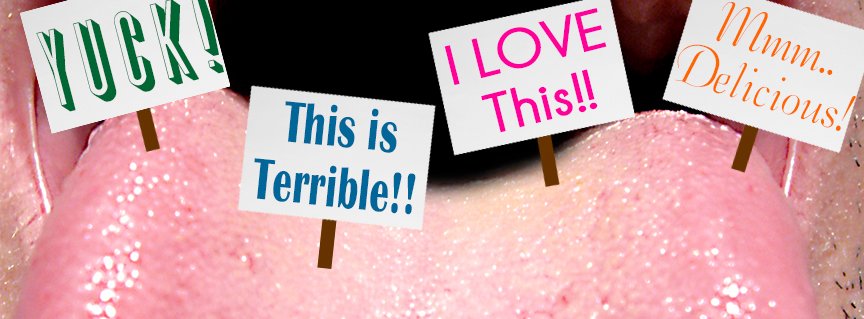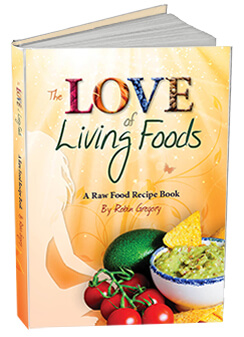Acquired Taste: The Psychology of our Taste Buds or Why You Don’t Like Cilantro
2013

Why do we need to acquire a taste for some foods? Why are some foods so controversial? Like cilantro, and mushrooms, which are seriously disliked by some, but loved by others. We all know, or have heard, that we can develop an acquired taste for foods. But why are some foods so repulsive to some people that they refuse to even give them a chance?
Important news 1st!
I have a new commenting system!!
Building a website can be a daunting task and I am constantly tryng to speed it up and make it better. My biggest challenge with this site was probably the commenting system. I added facebook comments, built an app for that, set it up and lost my whole website twice in the process last year. It kept me up at night at the time and so I ended up having 2 so-so commenting systems. Not knowing what to do at the time, I left them. I have finally decided to rectify this situation. I have a new commenting system (Disqus), which I think is cleaner and better. What do you think?
I really want to hear from you. I would love to build more of a community, where we are growing together, sharing together and learning together. I love to learn from you too, and you help make me better as well. If you have anything to add on a topic you are reading, please add your imput. I love to hear from you!
ok, back to regular programming and big question of the day!
Why do some people love some foods, and hate others?
Some people think that it is because of our genes that we have different dispositions towards food, and this is why cilantro tastes like soap to some, but delicious to others. However, we agree on most foods: strawberries and bananas are sweet, lemons are sour and chilies are hot.

Here is another idea I have just heard and this makes more sense to me. We have developed patterns in our brain that help us to perceive flavors. People who will not even taste a given food have no pattern to associate that food with in their memory bank and so it automatically gets filed in the ‘danger, don’t eat that!’ section.
How our sense of taste is developed
According to neuroscientist Jay Gottfried, our senses of taste and smell have developed through the ages. How we translate and perceive tastes in the brain comes from patterns we have built up from past experiences. These senses were crucial to our survival; we used these patterns to help us look for food, and even a mate, and our senses (especially taste) protected us from predators and poisons.
Now when we taste a food, our brain searches through its memory file to find a pattern it recognizes based on past experience. Based on that pattern our brain creates a perception of flavor, and tells us how desired it is.
If the brain connects what we are tasting to something desirable, such as sugars and fats (which the body does use constantly and needs) it has a high level of desirability. If it reminds us of a poison or predator, such as a harsh chemical, we spit it out.
Every new taste we experience updates and expands our range of patterns. Tasting new foods will help develop a broader range of foods that we enjoy the taste of and can shift the way we look at foods. If we have nothing to match the taste with our brain tells us it is safer to stay away from it. So it is not necessarily bad, just unfamiliar.
Strategy to developing an acquired taste
In order to like a food your brain has to at least have a pattern to recognize it and know that it is safe to eat. To do this try adding small amounts that are almost undetectable in other foods.
Small amounts of cilantro can be hidden in guacamole, salsa or a burrito! I have a mushroom hater in the house who doesn’t even notice them when they are ground and put into sauces, like a tomato sauce or chili. Exposing your brain to small amounts will help develop a pattern recognition which will take down the ‘danger’ signal.
I have noticed from personal experience, watching my kids, friends, family, that when someone is adamant that they don’t like something and will not taste it ever, even if the flavor (or texture) is mostly concealed that the adverse (hate) reaction is the strongest.
What do you think?
What food do you really dislike?
Did you love cilantro when you first tried it?
Have you developed an scquired taste for any food?
Please leave me a comment below! I’d love to hear if you agree or not and hear your thoughts!






